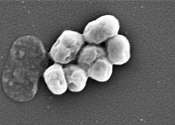Plastics, pathogens and baby formula: What's in your shellfish?
The first landmark study using next-generation technology to comprehensively examine contaminants in oysters in Myanmar reveals alarming findings: the widespread presence of human bacterial pathogens and human-derived microdebris ...









